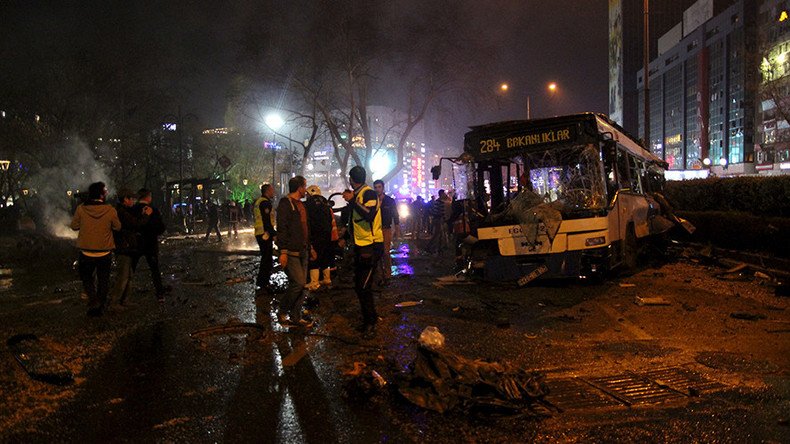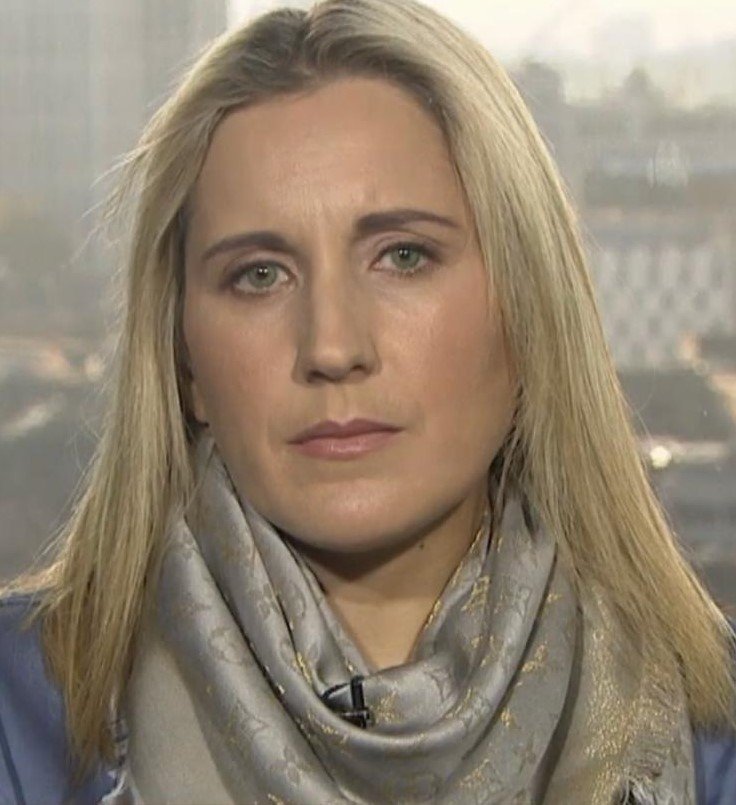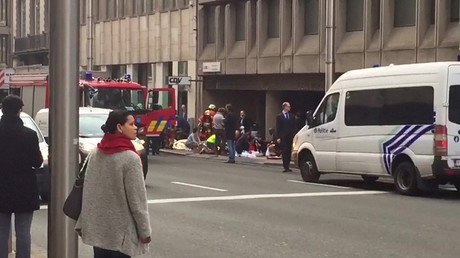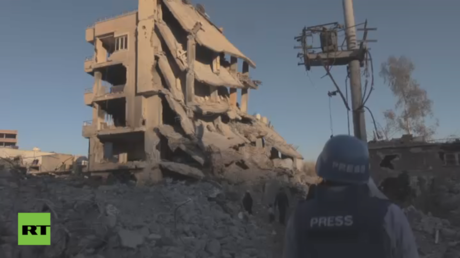Might is right – How terrorism is fast becoming a political norm

Turkey and Belgium’s latest brushes with terror are yet more reminders of the uncertainty of our time. While we may claim dialogue over belligerence, it is nevertheless wars which define nations’ dynamics, thus making terror the norm, rather than the exception.
In what can only be described as governments’ painful vulnerability to terrorism, Istanbul, and Brussels – both popular focal points were the target of a terrorist attack – another vengeful, and it needs to be said, cowardly move against innocent citizens, in the name of political gain.
Since July 2015, when a demented ISIS militant blew himself up in Suruc, a city near the Syrian border, Turkey has become synonymous with insecurity – radicals’ new target of choice, yet another pressure point to be exploited against an otherwise apparently stable government. Scarcely a month goes by without Turkey witnessing an explosion against its people, its landmarks or its institutions. A sitting duck at Europe’s door, Turkey’s terror problem has become somewhat of a cruel banality.
Turkey of course is not alone in her fate – Brussels was hit this Tuesday, an odious testament to terror’s reach and terror’s span. Formerly viewed as a model of safety, and political stability, the Old Continent has been breached too many times for anyone to assume that borders offer security.
But why? What is Terror’s endgame? And more importantly how can we hope to stop such a security hemorrhage?
Note that I am not asking who, but why. When it comes to terror, identification is not exactly an issue since most radical groups are rather keen on volunteering that information. Admission of guilt has become the terrorists’ calling card, their own twisted version of a mission statement against those they view as the enemy: mainly the state. In this terror rationale victims are mere conduits of fear – proof of just how serious and determined certain groups are in the pursuit of their political agenda. At the end of the day, regardless of the ideology which motivates radicals: whether religious, political, or even ethnic, the goal of terror will always be to instill fear, and erode the fabric of power to eventually bend the state to terror’s will.
So how do we go about taming, and eradicating such a beast? If the question seems obvious, our governments have yet to come up with viable solutions … and since waging wars only helped metastasize political radicalism, allowing groups, and factions sitting on the fringes of mainstream political life to slip into terror’s modus operandi, I would suggest we begin thinking outside the box.
Terror has proven to be both an elusive, and yet global enemy - a cunning hydra whose ability to metamorphose, fragment and contaminate has confounded most governments so far …Turkey, or Belgium for that matter, are not the only states desperately reaching for a solution. Unless of course when terror is being wielded as a political weapon to further one’s dictatorial agenda … But even then, terror has already proven to be a vengeful and unpredictable mistress.
In all truth it is difficult not to look at Turkey, and President Recep Erdogan’s propensity to exploit terror to its advantage and not admit that Turkey today is paying for the insanity of its ambitions. As it happens the adage: “Ordo Ab Chao” should read not “out of chaos, order” but: out of chaos, more chaotic chaos. At the risk of disagreeing with the great Friedrich Nietzsche, nihilism, or rather political nihilism did not exactly make for a safer or better world.
The same could be said of NATO and its member-states’ “liberal” use of military interventionism in the Greater Middle East: Libya, Syria, Iraq, Afghanistan, Yemen, the list goes on and on …
So far all that governments have done is to attempt to address security breaches – thus withdrawing behind an imaginary iron wall in the hope that a buffer of steal, surveillance and thinned out civil liberties will somehow act as a deterrent to radicals, allowing peace and quiet to be restored. Here’s the problem: it is this knee jerk reaction to terror which has helped breed further radicalism, and ultimately allowed for more acts of blind hatred to be carried out.
Rather than address the root of terror, and recognize that behind an ideology lies a monster which its very survival relies on its ability to exploit socio-economic upsets, religious lay lines, and/or political fractures, nations have chosen violence, and oppression, stigmatization and profiling to smite the enemies within their midst, oblivious to the fact that by doing so, they have in fact contributing to the making of terror.
Do not get me wrong here, I am not suggesting we all hold hands and dance around a campfire! I’m only saying that we might have thoroughly underestimated the role society has played in exacerbating terror’s phenomenon. Terror is no longer an aberration, it is slowly becoming the norm factions have bought into to engage the authorities. Unless we wake up to the language of terror, and quickly learn to translate it back, we stand to be absorbed into its universe … actually we have been doing just that for the past decade or so.
Terrorism today has become together a language, a movement and a convoluted form of political activism. News flash … ISIS is NOT the only terror out there. It could well be that in our desire to label terror, and reduced its existence to that of Islamic radicalism; we have completely missed the pluralism it inherently houses, since it stands in rejection of all, and any systems which denies it absolutism.
Turkey I believe should stand a cautionary tale to how terror has insidiously redefined politics, government policies, and the way we understand political engagement.
The March 19 attack on Istiklal Street was the fourth suicide bombing in Turkey this year. Two in Istanbul have been blamed on ISIS, while the two others in the capital Ankara, have been claimed by Kurdish militants. If you look closely both forms of radicalism have actually echoed President Erdogan’s own authoritarian narrative, allowing for a hardening of positions on all sides, rather than making space for some form of a dialogue. Ankara has actually used the fear of terror, to further its own agenda, and associate all forms of political opposition to terrorism.
Following in the footsteps of many repressive regimes such as Israel, or Bahrain; Turkey has used national security to legitimize its oppression of minorities – in this instance the Kurds. In this rationale autocracies continue to abide by, it is often freedom fighters who are demonized, while the state is allowed to run murderous campaigns. In this equation ISIS has been utilized as a convenient umbrella under which all so-called political undesirables have been labeled under – thus criminalizing any, and all forms of political opposition.
How many times have we heard officials rationalize violence for national security? Only this March President Erdogan argued that democracy has no value in the face of political opposition.
How many times have we seen groups, and factions being declared unlawful to fit officials’ pre-determined political agenda? Hezbollah here comes to mind.
At such a time when the Kurds have called on Ankara to hear their grievances, and heed their calls for self-governance, President Erdogan has worked to portray all Kurds as violent enemies of the state – a means to an end, which allowed for the brutal crackdown Turkish security forces have carried against all Kurds: including women and children.
In the name of political control, and territorial hegemony minorities’ desperate bid for social justice has been mislabeled under terrorism. And while of course no one can deny that a terror attack did in fact take place, there is a stark difference in between ISIS insanity, and Kurds’ ambitions.
Here is a question to mull over: What is it about our society that pushes groups and individuals to resort to terrorism instead of engaging in talks?
The statements, views and opinions expressed in this column are solely those of the author and do not necessarily represent those of RT.















